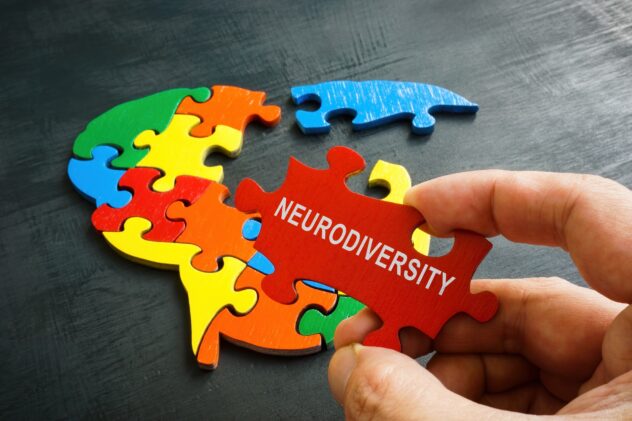
Cracking the Code: Sleep Deprivation, Neurodivergence, and the Hypnotherapy puzzle.
Lying awake at three in the morning, wondering if sleep is something other people were just naturally gifted, is an all too familiar experience. For neurodivergent people, it is not just about feeling tired, it is like trying to win a game where the rules change every time you start making progress. The link between sleep deprivation, neurodivergence and hypnotherapy is not just about tossing and turning, it is about finding solutions that actually work for brains that do not follow the standard blueprint.
Hypnotherapy is not some mystical nonsense involving a pocket watch and a man with a suspiciously soothing voice. It is a research backed tool that helps many neurodivergent people finally get some decent rest. This is not about tricking yourself into sleep, it is about using guided relaxation techniques that work with your brain instead of against it.
Why Sleep Deprivation Hits Neurodivergent Individuals Harder
For neurodivergent people, bad sleep does not just mean feeling groggy. It turns everyday challenges into an uphill battle. Struggles with focus, emotional regulation and sensory overload all become ten times worse when sleep deprivation enters the chat. It is like trying to charge your phone with a dodgy cable that only works when you hold it at a very specific angle.
Unlock peak brain performance with science-backed biohacks. Join free now & get your guide for just £4.99 (45% off)!

Some of the biggest culprits include:
- Irregular Sleep Cycles. Many neurodivergent people have sleep patterns that do not line up with the standard nine to five world, which makes the idea of a strict bedtime feel ridiculous.
- Sensory Overload. That streetlight flickering outside, the hum of the fridge or the neighbour’s cat having a crisis at two in the morning might as well be a full blown concert.
- Anxiety and Overthinking. Instead of winding down, the brain sees bedtime as the perfect opportunity to remember every awkward moment since childhood and start a full blown debate about things that have not even happened yet.
This creates a vicious cycle. Bad sleep makes neurodivergent struggles worse, which makes it even harder to get the rest needed to function properly.
Hypnotherapy as a Sleep Hack
Hypnotherapy is not just another wellness trend. It is a practical tool that helps rewire the brain’s relationship with sleep. By guiding the mind into a deeply relaxed state, it helps lower stress and quiet the kind of overthinking that keeps people up at night.
For neurodivergent people, hypnotherapy offers specific benefits:
- Customised Sessions. A good hypnotherapist does not just follow a script like a bad actor in a soap opera. They actually tailor sessions to tackle your specific sleep struggles, whether that means quieting your overactive brain at night or helping you stop fixating on that weird noise your fridge makes at 2 a.m.
- Deep Relaxation. If your brain treats bedtime like an unsupervised party, hypnosis teaches it how to settle down without resistance.
- Positive Reinforcement. Instead of spiralling into another night of doom scrolling, hypnosis can help create healthier habits and sleep friendly thought patterns.
Pairing Hypnotherapy with Other Sleep Strategies
Hypnotherapy is not some secret society where you need a code word to get in, but depending on where you live, it might feel that way. In some places, booking a session is as easy as ordering a pizza, while in others, it is more of a treasure hunt. Here is what you are dealing with:
- Cognitive Behavioural Therapy for Insomnia is basically a reset button for your sleep habits. It helps you ditch the unhelpful patterns that keep you staring at the ceiling and reframe the way you think about rest, kind of like decluttering your brain so it stops hoarding bad sleep routines.
- Better Sleep Hygiene. Sticking to a routine, lowering the lights before bed and putting your phone down instead of refreshing social media one last time can all help signal to your brain that it is time to sleep.
- Medical Support. If sleep issues are severe, it is worth consulting a professional. Hypnotherapy can work alongside other treatments to help manage stress and sleep patterns more effectively.
How Easy is it to Get Hypnotherapy?
Hypnotherapy is not some mystical, hidden practice that requires a secret handshake to access, but depending on where you live, it might feel that way. Some places make it as easy as booking a takeaway, while others have you jumping through hoops. Here is what you are working with:
- United Kingdom. The NHS is about as likely to cover hypnotherapy as it is to prescribe you a spa day, so if you want a session, private is the way to go. If you are looking for a pro who knows what they are doing, check out the National Council for Hypnotherapy or the Complementary and Natural Healthcare Council. The good ones know how to tailor sessions for neurodivergent brains and are not just reading scripts off a Google Doc. I don’t mind supporting our very own Hypnotherapist Noreen.
- United States. Hypnotherapy is getting more recognition, but good luck getting insurance to cover it. If you are going private, make sure the hypnotherapist is certified by the American Society of Clinical Hypnosis or the National Guild of Hypnotists. Because let’s be honest, you do not want to end up in a dimly lit room with someone who just watched a YouTube tutorial.
- Australia. If you are in Australia, hypnotherapists are easy to find through the Australian Hypnotherapists Association. Medicare does not cover it, but some private insurance plans might help out, especially if you are using it for sleep or stress. Worth checking before you fork out the cash.
- Canada. Hypnotherapy is on the rise in Canada, but like most places, public health plans will not cover it. If you are lucky, private insurance might throw a few dollars your way. Reputable practitioners are usually certified through the Canadian Hypnotherapy Association, so stick with those who have proper credentials.
- New Zealand. If you are in a city, you will have plenty of options for hypnotherapy. If you are in a remote area, well, you might have better luck hypnotising yourself. Practitioners are accredited by the New Zealand Association of Professional Hypnotherapists, so check that if you are booking a session.
Why Sleep is Your Secret Weapon
Neurodivergence comes with its own set of skills, but even the sharpest mind needs rest. Sleep deprivation is not some badge of honour, it is just making everything harder. Using smart strategies like hypnotherapy, proper sleep routines, and actually letting yourself rest instead of doom scrolling at midnight can make a serious difference.
Getting better sleep is not about transforming into some perfectly rested, ultra-productive superhuman. It is about having enough energy to function without feeling like you are running on a battery that only charges to thirty percent. You do not need a complete life overhaul, just a few tweaks that actually work for you.
Bringing it All Together
The connection between sleep deprivation, neurodivergence, and hypnotherapy proves that generic sleep advice does not work for everyone. If telling yourself to “just go to bed earlier” actually solved the problem, you would have done it by now.
Hypnotherapy can help calm an overactive brain, lower stress, and get you into better sleep habits without relying on sheer willpower. When paired with other approaches like cognitive behavioural therapy or mindfulness, it can actually make a difference instead of being another thing you try once and forget about.
At the end of the day, the goal is not to be perfect, it is just to get enough decent sleep so you are not running on fumes. Whether that means giving hypnotherapy a shot, rearranging your bedtime habits, or just figuring out what actually works for you, prioritising rest is one of the best things you can do for your brain.
Join the Herbal Biohacker Community
At Herbal Biohacker, we are all about helping neurodivergent people stop feeling like they are constantly running uphill. Whether you are looking for better sleep solutions, accountability, or just a place to share your experiences, our community is here for you. Join us and connect with people who actually get it.
Disclaimer
This blog is for informational purposes only and does not replace professional advice. Always consult with a qualified healthcare provider for guidance tailored to your needs. Also, occasionally we’ll promote something from one of our affiliates, but hey… we gotta make money somehow.



